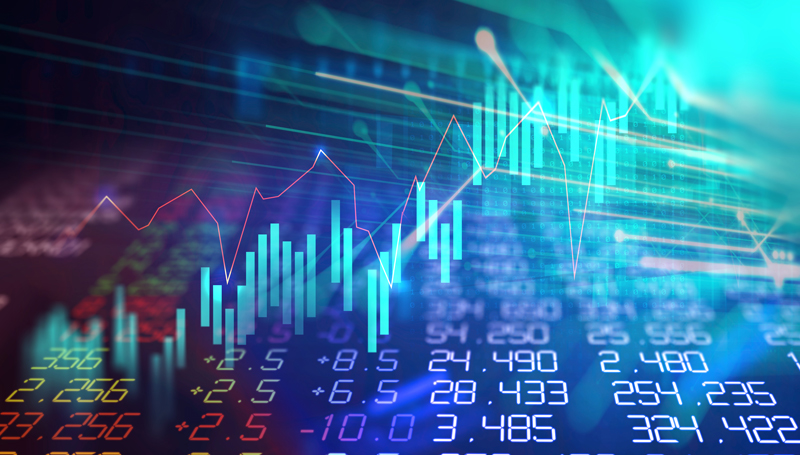

13.08.2019 – Daily report. No ray of sunlight currently reaches the floor of the Frankfurt Stock Exchange. The world appears grey and gloomy to most shareholders. Just as in global trading, fears of recession are making the rounds – the ZEW index is collapsing sharply. In addition, trouble spots such as China, Italy and now Argentina are pulling on the nerves.
DAX below the 200-day line
Tuesday morning didn’t go very well for the cops. The DAX recently traded at minus 0.7 percent at 11,600 points. The ZEW index intensified the depression of recent days: The August indicator for economic expectations dropped dramatically to minus 44.1.
Fresh food for the bears on the German stock exchange. And for all investors who trade short CFDs – but please only with Germany’s best CFD brokers with a Bafin license. The DAX is already hanging just below the 200-day line, which most recently stood at 11,640 points. The German leading index has thus perforated its safety net. The closing level will now be important. Just as in previous meetings, the question arises as to whether the support will not tear in the long term.
Italy could become a factor for the stock market to plunge. Investors in the bond and currency markets are also keeping a close eye on developments there, as a possible new election and victory of the Lega could mean stress for the euro. In the government crisis, the Senate votes today at 6 p.m. on a date for the vote of no confidence against Prime Minister Giuseppe Conte.
Threatening invasion depresses Asian stock markets
Several negative factors at once led to price losses in Asia. The Nikkei 225 slipped by 1.1 percent to 20,455 jobs. The Chinese CSI-300 closed with a minus of 0.9 percent at 3,666 points. The Singapore government has just lowered its growth forecast for the current year to almost zero. In addition, the strong yen led to a reluctance to buy shares in export-oriented corporations.
However, the continuing trade dispute between China and the USA and the situation in Hong Kong in particular caused nervousness. Beijing is apparently preparing an invasion of the former crown colony, and the indomitable demonstrators are facing a massacre. Videos from the neighbouring Chinese city of Shenzhen with columns of military vehicles circulate on Twitter. The question remains how the USA would react to a military intervention. Perhaps with new sanctions: In the customs dispute, new punitive tariffs are to come into force on September 1 anyway.
Backstabbers in New York
The situation around China had already worried Wall Street the evening before. Fears of a possible economic war with the People’s Republic of China were the cause of the recession. The Dow Jones Index bid farewell to the closing bell with a minus of 1.5 percent at 25,896 points. The broad-based S&P 500 fell 1.2 percent to 2,882 positions. The Nasdaq Composite slipped by 1.2 percent to 7,863 points.
Crash in Argentina
What remains is a glimpse of the next crisis. Argentina could offer a good investment opportunity for all courageous investors who like to bet on violent counter-reactions. Because there is panic raging – and after that usually a certain relief follows. The financial markets collapsed after the presidential primary election. The reason: Argentina’s President Mauricio Macri has suffered a bitter rebuff. The stock market slumped by about a third. Government bonds also crashed, and the yield on bonds due in 2026 with an interest rate of 5.875 percent rose from around 10 to 15.16 percent. The 20-year bond with a coupon of 3.75 per cent rose from around 8.75 per cent to just under 11 per cent. The peso continued to fall in price. Already last year it had collapsed by about half due to currency crises.
Demand for gold and silver
In the face of all the unrest, investors fled to safe havens. Like gold, silver has become more expensive. Interesting things are looming in the chart technique for the white precious metal: It currently looks as if the silver ounce is forming a small flag at around 17 dollars. And that suggests further price gains.
This is what the day brings
You see, the table for CFD traders is richly laid. The view remains in the calendar. At 2:30pm the US consumer prices are reported, ditto the real incomes for July.
At 10:30pm, the weekly crude oil inventory data from the private American Petroleum Institute complements today’s OPEC monthly report.
The Bernstein Bank wishes you successful trades!
Important Notes on This Publication:
The content of this publication is for general information purposes only. In this context, it is neither an individual investment recommendation or advice nor an offer to purchase or sell securities or other financial products. The content in question and all the information contained therein do not in any way replace individual investor- or investment-oriented advice. No reliable forecast or indication for the future is possible with respect to any presentation or information on the present or past performance of the relevant underlying assets. All information and data presented in this publication are based on reliable sources. However, Bernstein Bank does not guarantee that the information and data contained in this publication is up-to-date, correct and complete. Securities traded on the financial markets are subject to price fluctuations. A contract for difference (CFD) is also a financial instrument with leverage effect. Against this backdrop, CFD trading involves a high risk up to the point of total loss and may not be suitable for all investors. Therefore, make sure that you have fully understood all the correlating risks. If necessary, ask for independent advice.
